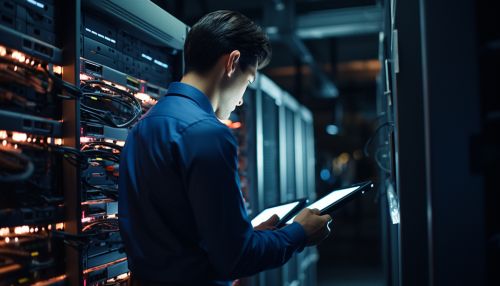Security auditor
Overview
A Security Auditor is a professional who conducts audits to identify vulnerabilities in a system's defenses and recommends appropriate security measures. These professionals are essential in maintaining the integrity, confidentiality, and availability of information within an organization. They are typically responsible for conducting both internal and external audits, ensuring compliance with laws and regulations, and implementing security policies and procedures.
Role and Responsibilities
The primary role of a security auditor is to ensure that an organization's information systems are protected from potential threats. This involves a variety of tasks, including:
- Conducting regular security audits to identify vulnerabilities and risks.
- Developing and implementing security policies and procedures.
- Ensuring compliance with relevant laws, regulations, and standards.
- Providing recommendations to improve security measures.
- Conducting training and awareness programs for employees.
- Coordinating with other departments to ensure the security of information systems.
Skills and Qualifications
Security auditors typically have a background in information technology or cybersecurity. They also possess a range of skills and qualifications, including:
- Knowledge of information security principles and practices.
- Understanding of risk management and risk assessment techniques.
- Familiarity with security standards and frameworks, such as ISO 27001 and NIST Cybersecurity Framework.
- Proficiency in using security tools and technologies.
- Strong analytical and problem-solving skills.
- Excellent communication and report-writing skills.
Professional certifications, such as Certified Information Systems Auditor (CISA), Certified Information Security Manager (CISM), or Certified in Risk and Information Systems Control (CRISC), are often required or preferred.
Security Audit Process
The security audit process typically involves several steps:
1. Planning: The auditor identifies the scope of the audit, including the systems to be audited and the standards to be used. 2. Data Collection: The auditor collects data about the organization's security controls, policies, and procedures. 3. Evaluation: The auditor evaluates the effectiveness of the security controls and identifies any vulnerabilities or risks. 4. Reporting: The auditor prepares a report detailing the findings of the audit and provides recommendations for improvement. 5. Follow-up: The auditor follows up to ensure that the recommended improvements have been implemented.
Challenges and Ethical Considerations
Security auditors face several challenges in their work, including keeping up with the latest security threats and technologies, dealing with complex and evolving regulations, and managing the potential conflict of interest that can arise when they are also responsible for implementing security measures.
In addition, security auditors must adhere to a strict code of ethics. They must maintain the confidentiality of the information they handle, avoid any activities that could compromise their independence or objectivity, and conduct their audits in a professional and unbiased manner.
Future Trends
With the increasing reliance on digital technologies and the growing threat of cyber attacks, the role of security auditors is expected to become even more critical in the future. Trends such as the adoption of cloud computing, the Internet of Things (IoT), and artificial intelligence (AI) are creating new challenges and opportunities for security auditors.
See Also
- Information Security
- Risk Management
- ISO 27001
- NIST Cybersecurity Framework
- Certified Information Systems Auditor
- Certified Information Security Manager
- Certified in Risk and Information Systems Control


